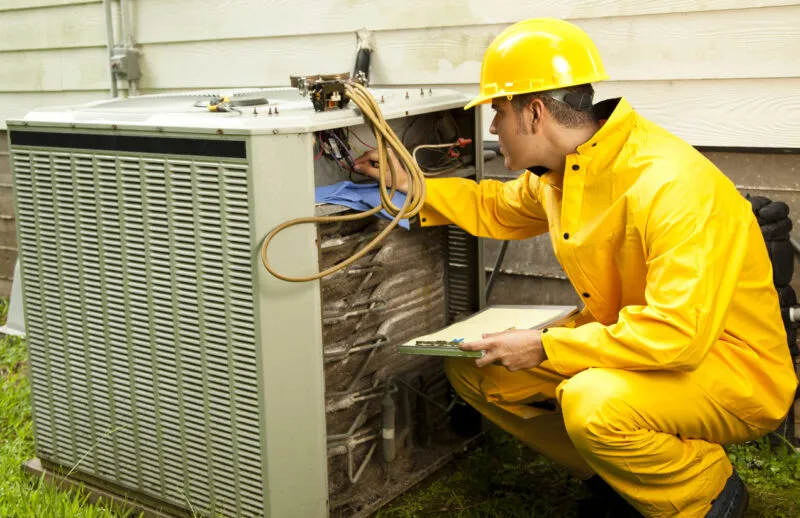Preparing Your HVAC System for Hurricane Season: Essential Tips for Florida Homeowners

Storm season is on the horizon. As a Florida homeowner, you’re used to it, but is your HVAC system ready? Hurricane HVAC protection is essential, as cyclones and other major storms can cause severe damage to your air conditioning system. Taking proactive steps to safeguard your system before the storms hit can help prevent costly repairs. It also keeps your home comfortable during Florida’s hottest months.
Here are some tips for securing your heating and cooling system from the vagaries of Mother Nature.
Schedule a Pre-Season Tune-up
It’s always a good idea to inspect your system in early summer. Getting it done before storm season helps even more. In addition to cleaning and testing your system, the technician can check for wear and tear that might make it more vulnerable to storm damage. They can also inspect your electrical connections to ensure they are safe and secure.
A summer tune-up can help your system withstand storms and reduce the risk of a breakdown on a hot day.
Secure Your Outdoor Unit for Hurricane HVAC Protection
Your outdoor unit is vulnerable to high winds and flying debris. Secure it to a concrete slab using brackets or hurricane straps. If in doubt, consider adding a strap. Clear the area around your unit of any loose items and keep it clear. Trim trees, branches, bushes, and shrubs. In addition to risking damage, overgrowth can block airflow and make your system less efficient.
Properly securing your unit prevents damage caused by shifting or lifting from the wind.
Turn Off Your System During the Storm
When the storm approaches or before you evacuate, turn your system off at the breaker. If you’re evacuating, turning off all of your power is not a bad idea. Storms can cause power surges that can damage your system. If your system continues running while there’s a flood, it can pull water into the system, causing significant damage.
Unplug your thermostats and smart home devices, too. These devices function like small computers, making them susceptible to power surges.
Safeguard Against Power Surges
Lightning is frequent during storm season, and storms can blow up without warning. While this kind of powerful storm gives plenty of chances to turn everything off, a severe thunderstorm might not. It might hit while you are asleep or not at home.
Install a surge protector to keep your HVAC unit safe and a whole-home surge protector for your thermostats and appliances. It’s also a good idea not to leave portable electronics and laptops plugged in after charging.
Consider installing a backup generator to at least power lights and your fridge if there’s an outage.
Cover Your Unit (Carefully)
Another way to secure your outdoor unit from debris is an HVAC cover. You can buy one fitted to your specific device and put it on before a storm or evacuation. Don’t use a plastic tarp or any other makeshift material; these can trap moisture and create mold or corrosion problems.
Make sure to remove the cover before turning the system back on after the storm. Running your HVAC with a cover on can cause severe damage. If needed, place the bag or box that contains the cover in a noticeable location to help you remember to take it off.
Inspect After the Storm
Before turning your air conditioning system back on after a storm, give it a quick once-over. Check for debris around the unit and clear it away if possible. Look for visible damage or flooding, and check for strange smells, sounds, or leaks.
Don’t restart your system if you aren’t sure, and if you think you have damage or just need peace of mind, call a professional.
Consider Flood Protection Upgrades With Aztil Air
Florida is a low-elevation state, making large areas vulnerable to flooding. If you live in one of those areas, talk to your HVAC professional about simple upgrades for hurricane HVAC protection. Elevating the unit is one of the easiest. If your property is on a slope, consider placing the outside unit higher up, where water will flow away from it. When replacing your system, inquire about water-resistant models or ask about protective platforms if you’re not replacing it.
These simple steps can save you from expensive repairs and potentially days without AC at a hot time of year. They can also help your peace of mind, making hurricane season less stressful.
At Aztil Air, we’re here to help. Contact us to schedule a tune-up or inspection or to talk about ways to hurricane-proof your HVAC system.












